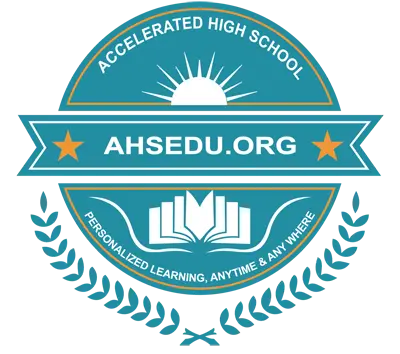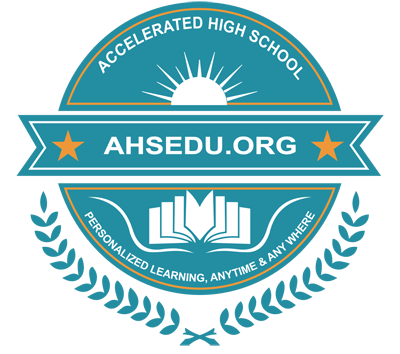Accelerated High School
Standardized Curriculum of Social Studies-I
In our world today, many amazing things are happening because of science and technology. It's important for everyone to learn about them, even kids in Grade 1. When we understand how things work and how to solve problems using evidence, we can think better about the world around us. Then we can help make decisions about important things like how to take care of the Earth, how to stay healthy, and how to fix problems in our communities.
Mission:
All students will acquire the knowledge and skills to think analytically about how past and present interactions of people, cultures, and the environment shape the American heritage. Such knowledge and skills enable students to make informed decisions that reflect fundamental rights and core democratic values as productive citizens in local, national, and global communities.
Vision:
This course is designed to spark curiosity and foster a deeper understanding of the world we live in. Through engaging lessons and activities, students will;
- Explore fundamental concepts such as family dynamics, the roles of community helpers.
- Discuss the significance of various geographical features.
- Understanding the importance of civic rules and laws to mastering the basics of mapping, including cardinal directions.
- Gain valuable knowledge about their surroundings.
- Discover the rich diversity of our planet, from the towering mountains to the vast oceans, with a special emphasis on the majestic Pacific Ocean.
- Learn about the production of goods, the provision of services, and the concepts of needs, wants, buying, trading, and saving.
Spirit and Intent:
The Grade 1 social studies curriculum at AHS is designed in alignment with The New Jersey Student Learning Standards for Social Studies (NJSLS-SS), providing a comprehensive framework for student learning. Our curriculum emphasizes the exploration of fundamental concepts such as community, family, and citizenship, while also fostering critical thinking and inquiry skills.
At its core, the NJSLS-SS emphasizes three essential dimensions: inquiry, concepts, and content. Throughout the curriculum, students are actively engaged in asking questions, conducting investigations, and making connections between key social studies concepts. This inquiry-based approach encourages students to develop a deeper understanding of the world around them and to become active participants in their communities.
Three Dimensions of AHS Science Curriculum:
The performance expectations in social studies reflect the three dimensions and describe what students should know and be able to do. In layman’s terms, they are “the standards.” They are written as statements that can be used to guide assessment and allow for flexibility in the way that students can demonstrate proficiency. The example below is provided to illustrate the interconnected nature of the NJSLS-SS components.
Social Studies Core Idea
|
|
Historical Thinking and Analysis Practice
|
Analyzing Historical Events and their Impact |
Use historical evidence to evaluate the impact of significant events and individuals on society and governance. |
Crosscutting Concept
|
Cause and Effect |
Analyze the causes and effects of historical events and their impact on societies.
|
For students to develop proficiency in the NJSLS-SS (New Jersey Student Learning Standards for Social Studies), they will need to engage in learning experiences that are meaningful, cumulative, and progressive. Becoming familiar with social studies practices and cross-cutting concepts is a critically important first step in designing learning experiences reflective of the three dimensions. A description of each of the social studies practices and the cross-cutting concepts can be found in the next sections. Students will engage in activities that connect with real-world contexts and promote a deeper understanding of social, historical, economic, and geographical concepts. By connecting new learning with prior knowledge, students develop a more coherent and integrated understanding of social studies content and skills. Through progressive learning, students develop the ability to critically analyze and evaluate information, form well-supported arguments, and propose solutions to complex social issues.
Curriculum for Grade-I Social Studies:
Standard 1: Geography, People and Environment.
Learning Objectives:
- The integration of social studies content and skills is essential for understanding and developing habits of mind that are necessary for students to become informed citizens and contributing members of society.
- Social studies education provides learners with the knowledge, skills, attitudes, and perspectives needed to become active, informed, and contributing members of local, state, national, and global communities.
- How all people, not just official leaders, play important roles in a community.
- Describe how communities work to accomplish common tasks, establish responsibilities, and fulfill roles of authority.
- Identify, discuss, and role-play the duties of a range of community workers.
- Explain the different physical and human characteristics that might make a location a good place to live (e.g., landforms, climate and weather, resource availability).
- Use maps to identify physical features (e.g., continents, oceans, rivers, lakes, mountains).
- Identify and describe the properties of a variety of maps and globes (e.g., title, legend, cardinal directions, scale, symbols,) and purposes (wayfinding, thematic).
- Compare and contrast information that can be found on different types of maps and determine how the information may be useful.
- Use maps to identify physical features (e.g., continents, oceans, rivers, lakes, mountains).
Topics of AHS-SS:
Meaning of Social Studies
- Define social studies
- Why social study matter
Community
- What is community
- Community helper
- Community places
Physical Geography
- Introducing basic geography
- Identify the earth's land feature
- Identify earth water feature
Map
- Introduction of map
- Use cardinal directions
- Compare map and picture
Where We Live
- Concept of Earth
- Concept of Mountain
- Concept of Oceans
- Pacific Oceans
- Concept of continents
Standard 2: History, Culture and Perspectives.
Learning Objectives:
- Describe characteristics of oneself, one’s family, and others.
- Demonstrate an understanding of family roles and traditions.
Topics of AHS-SS:
Family
- Meaning of family
- Understanding family roles and responsibilities.
Standard 3: Civic, Government and Human Rights.
Learning Objectives:
- Cite evidence that explains why rules and laws are necessary at home, in schools, and communities.
- Analyze classroom rules and routines and describe how they are designed to benefit the common good
Topics of AHS-SS:
Basic Civic
- Concept of rules
- Concept of laws
- Why do we need rules & Laws?
Standard 4: Economics, Innovation and Technology.
Learning Objectives:
- Describe the goods and services that individuals and businesses in the local community produce and those that are produced in other communities.
- Distinguish between needs and wants and explain how scarcity and choice influence decisions made by individuals, communities, and nations.
- Explain the roles of money, savings, debts, and investment in individuals’ lives.
- Explain the impact that decisions about savings, debt, and investment can have on individuals' lives.
Topics of AHS-SS:
World of Work
- Goods and services
- Need and wants
- Buy, trade, and save







